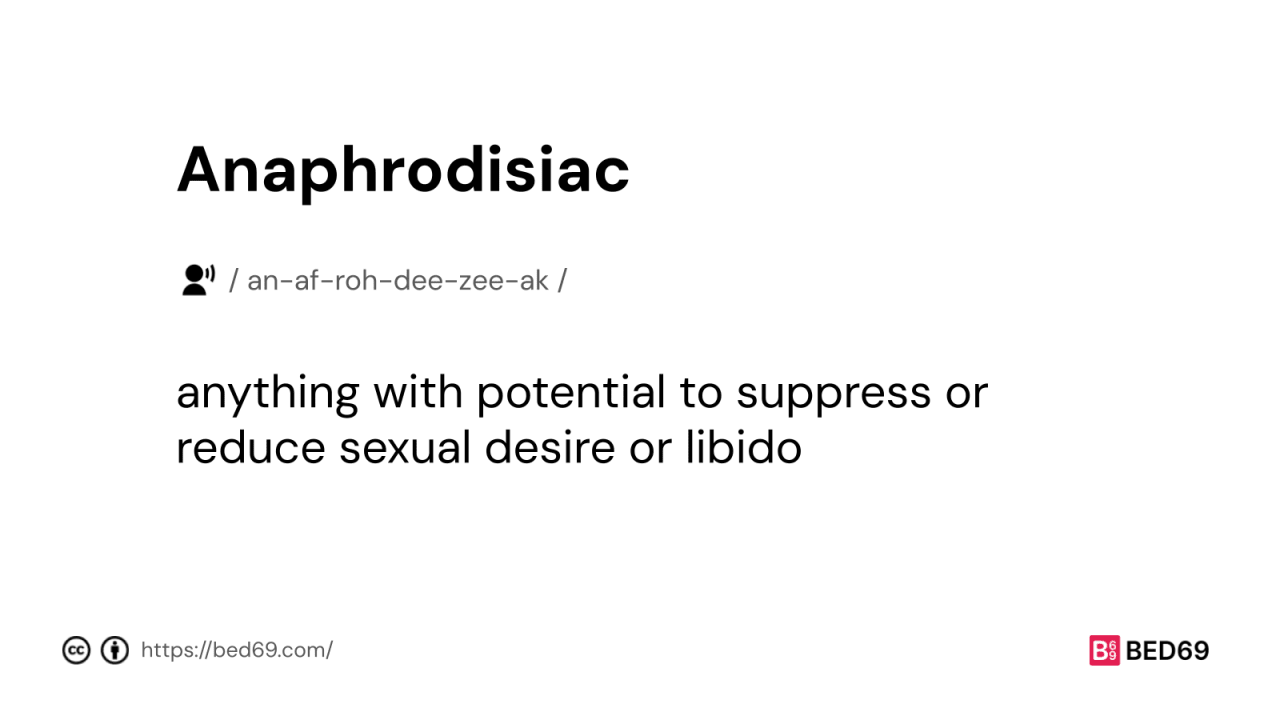What is Anaphrodisiac?
Anaphrodisiac is a term that comes from the Greek words “ana” meaning “against” or “backwards” and “aphrodisiac” meaning “something that stimulates sexual desire.” Anaphrodisiacs are substances or experiences that are believed to decrease or inhibit sexual desire. This can include medications, certain foods or drinks, and psychological factors such as stress or anxiety. Anaphrodisiacs can be used voluntarily by individuals who wish to reduce their libido or they can occur involuntarily due to health conditions or medications.
Anaphrodisiac pronunciation: / an-af-roh-dee-zee-ak /

How can stress impact your libido
Stress can significantly impact your libido. When you’re stressed, your body releases hormones that can suppress sexual desire. This can lead to difficulties in arousal and overall sexual satisfaction. Furthermore, stress can affect your mental well-being, making it challenging to feel emotionally connected to your partner, further dampening your sex drive.
Moreover, chronic stress can disrupt your sleep patterns, energy levels, and overall mood, all of which are crucial factors in maintaining a healthy libido. It’s essential to manage stress effectively through relaxation techniques, exercise, and open communication with your partner to help alleviate its negative impact on your sexual desire. Remember, addressing stress not only benefits your mental health but can also positively influence your intimate relationships and overall well-being.
Debunking common myths about anaphrodisiacs
Anaphrodisiacs are substances or experiences that are believed to decrease sexual desire, working in contrast to aphrodisiacs that boost libido. Common myths about anaphrodisiacs include the idea that they are only found in medications or purposely consumed foods.
In reality, anaphrodisiac effects can stem from various sources, including stress, anxiety, or certain medications, not just intentional choices. While historical remedies like saltpeter or potassium bromide have been used to reduce libido, modern treatments for managing sexual behavior, like estrogen or anti-androgen drugs, can come with undesirable side effects.
Critics argue that these solutions may only provide short-term relief, as sexual urges often return when the medications are discontinued. It’s important to understand that anaphrodisiac effects can be unintentional, stemming from everyday products like alcohol, tobacco, or even fatty foods, rather than just specific substances chosen for their inhibitory properties.
Explore other interesting terms:
